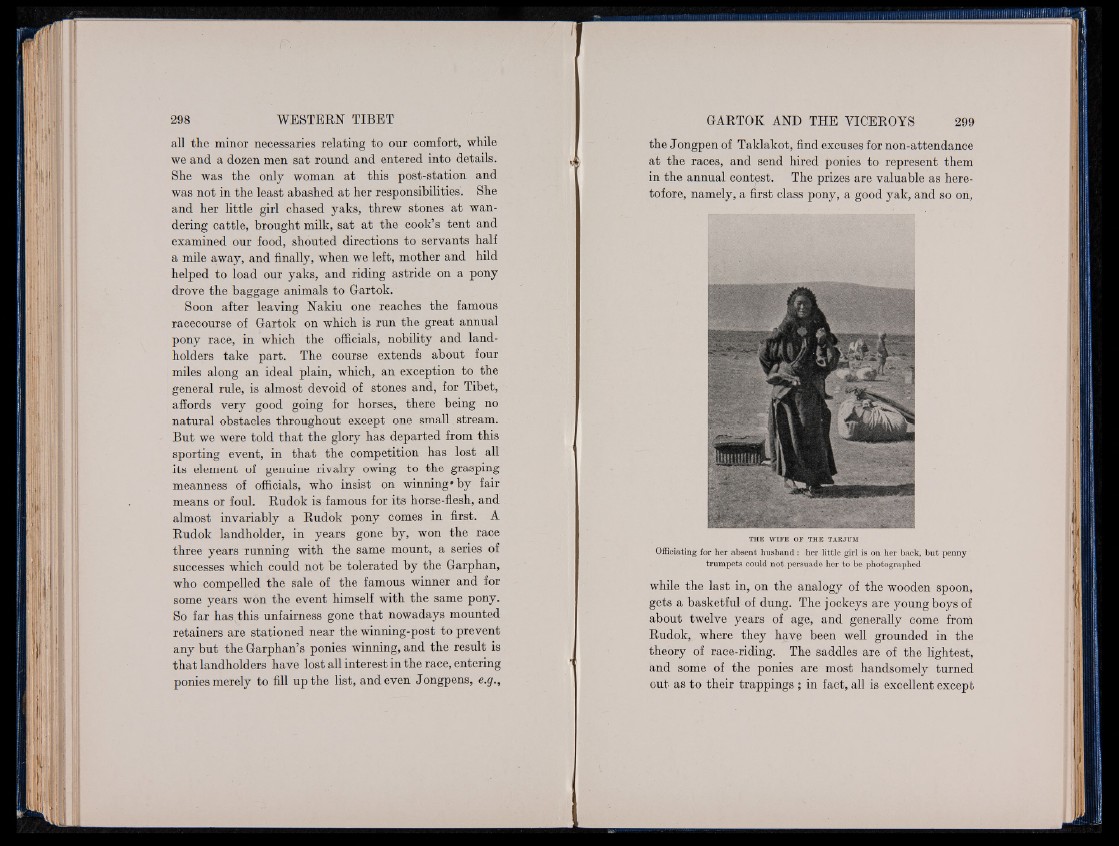
all the minor necessaries relating to our comfort, while
we and a dozen men sat round and entered into details.
She was the only woman at this post-station and
was not in the least abashed at her responsibilities. She
and her little girl chased yaks, threw stones at wandering
cattle, brought milk, sat at the cook’s tent and
examined our food, shouted directions to servants half
a mile away, and finally, when we left, mother and hild
helped to load our yaks, and riding astride on a pony
drove the baggage animals to Gartok.
Soon after leaving Nakiu one reaches the famous
racecourse of Gartok on which is run the great annual
pony race, in which the officials, nobility and landholders
take part. The course extends about four
miles along an ideal plain, which, an exception to the
general rule, is almost devoid of stones and, for Tibet,
affords very good going for horses, there being no
natural obstacles throughout except one small stream.
But we were told that the glory has departed from this
sporting event, in that the competition has lost all
its element of genuine rivalry owing to the grasping
meanness of officials, who insist on winning'by fair
means or foul. Rudok is famous for its horse-flesh, and
almost invariably a Rudok pony comes in first. A
Rudok landholder, in years gone by, won the race
three years running with the same mount, a series of
successes which could not be tolerated by the Garphan,
who compelled the sale of the famous winner and for
some years won the event himself with the same pony.
So far has this unfairness gone that nowadays mounted
retainers are stationed near the winning-post to prevent
any but the Garphan’s ponies winning, and the result is
that landholders have lost all interest in the race, entering
ponies merely to fill up the list, and even Jongpens, e.g.,
the Jongpen of Taklakot, find excuses for non-attendance
at the races, and send hired ponies to represent them
in the annual contest. The prizes are valuable as heretofore,
namely, a first class pony, a good yak, and so on,
THE W IF E OF THE TARJUM
Officiating for her absent husband : her little girl is on her back, but penny
trumpets could not persuade her to be photographed
while the last in, on the analogy of the wooden spoon,
gets a basketful of dung. The jockeys are young boys of
about twelve years of age, and generally come from
Rudok, where they have been well grounded in the
theory of race-riding. The saddles are of the lightest,
and some of the ponies are most handsomely turned
out as to their trappings ; in fact, all is excellent except